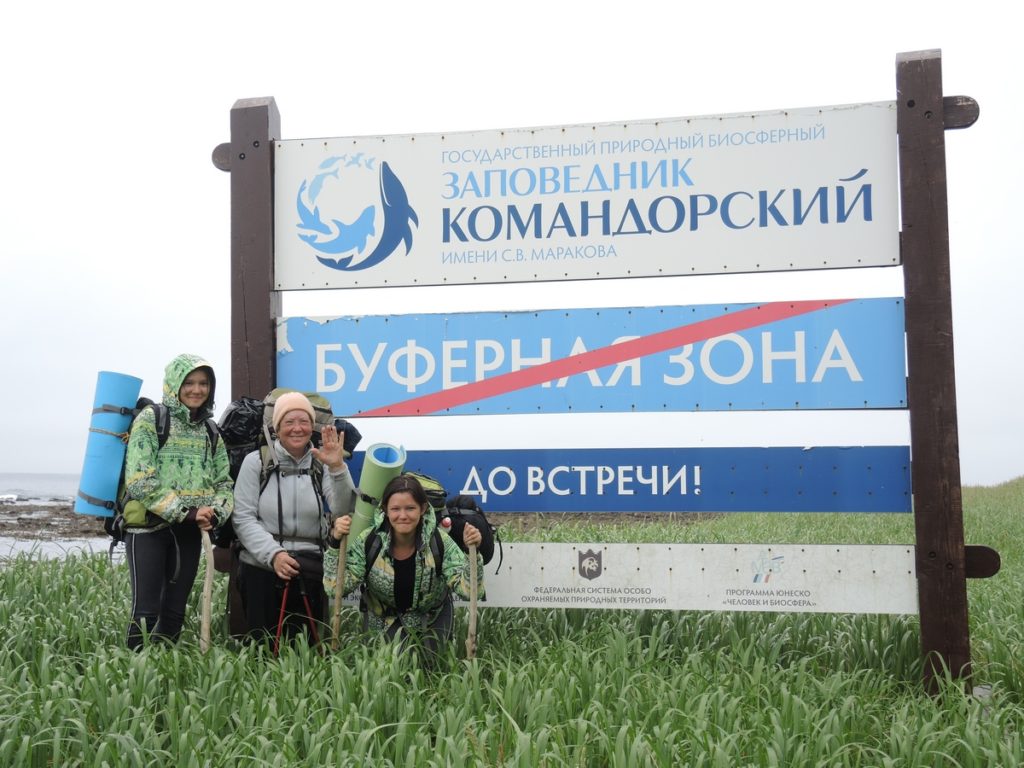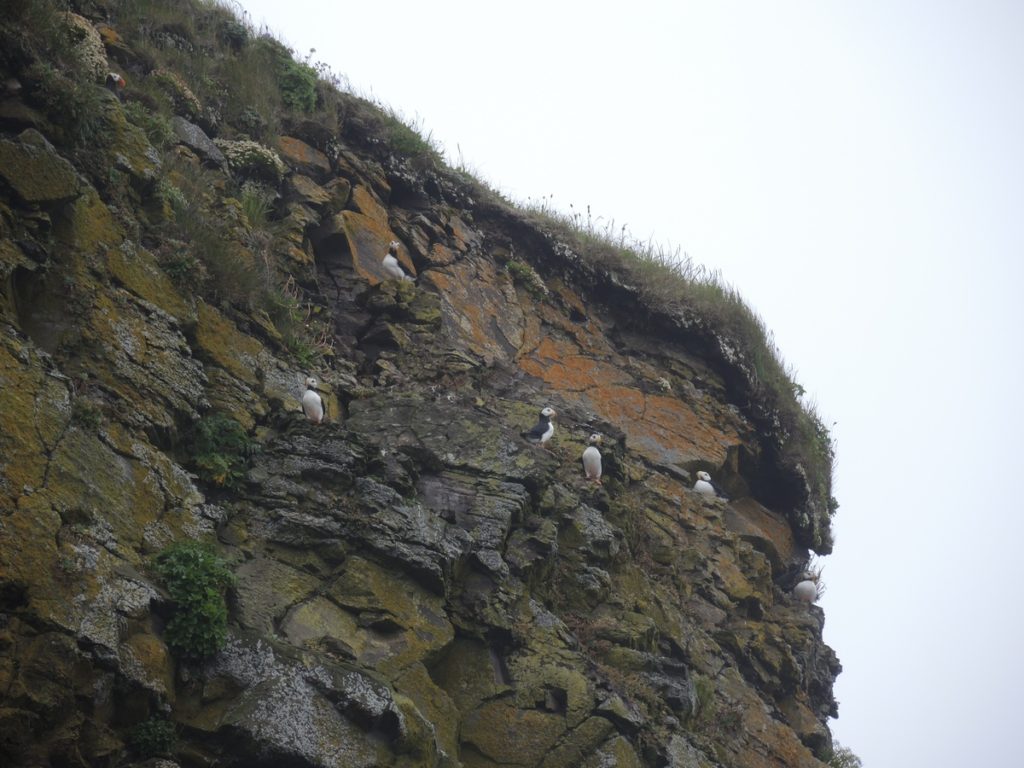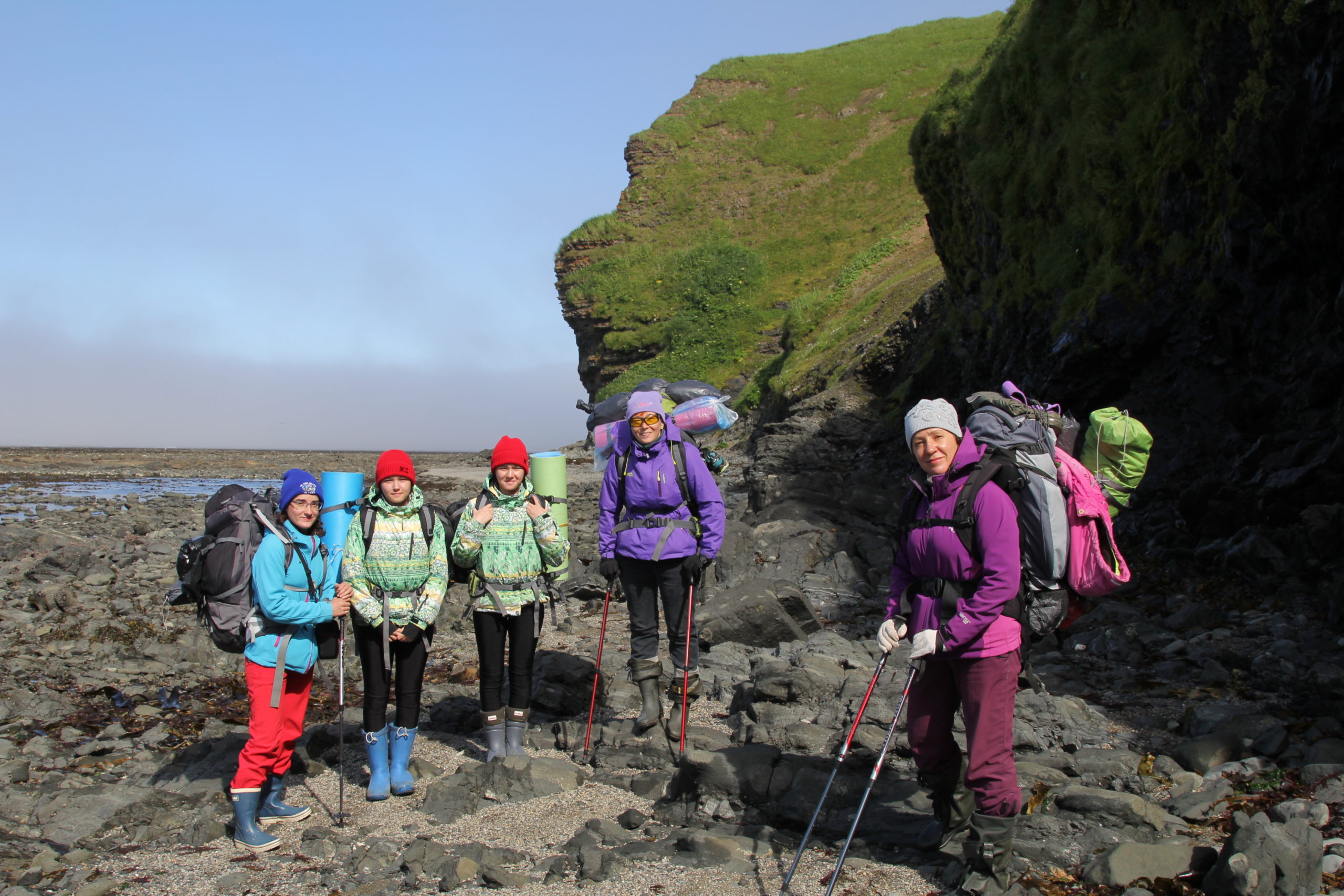Creative plans for youth activities during COVID times continue on the Commander Islands. Natalia Fomina led a three day hike this summer, and shares the below report. Bering Island looks such an incredible place, thank you Natalia for sharing this report and beautiful photos. This is the second year that it was not possible to run the children’s camp “Aglakh” on the Commander Islands. In the meantime, our students are engaged in pen-pall communication with their American friends. The most active are two Aleutian girls, Milena and Karolina Dubovskov. They are twin sisters and they have never been outside the Nikolskoe village. We decided to conduct a three-day hike and take them to the beautiful places of Bering Island: bird colonies, the Steller’s Arch, Vodopadnaya River and show them Nayushka Bay, where at the end of the 19th century the Southern Seal Rookery was located.

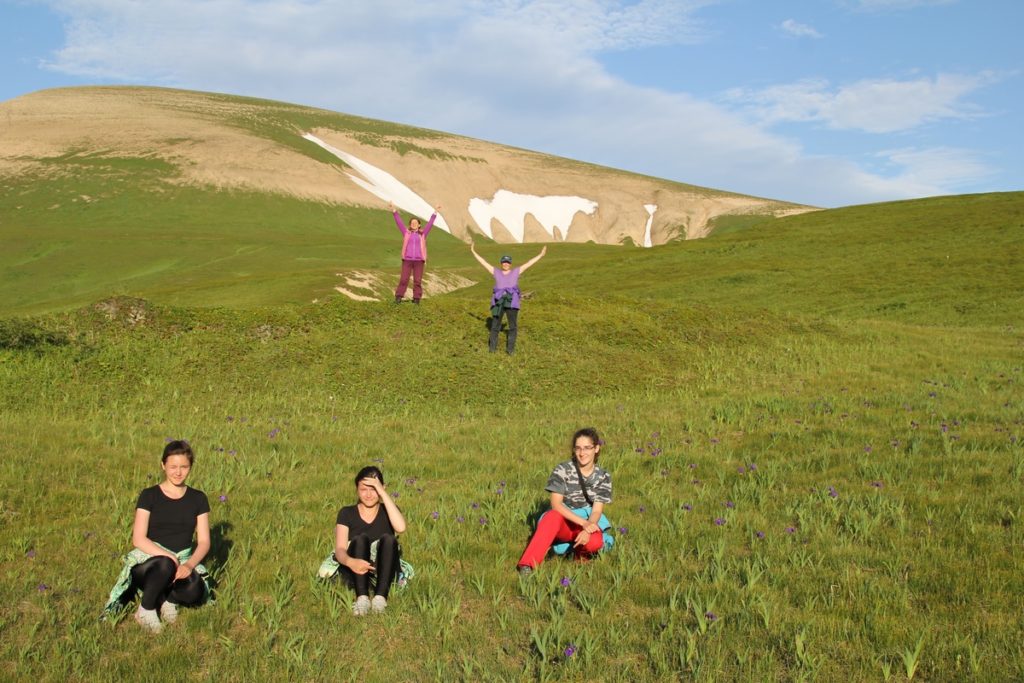
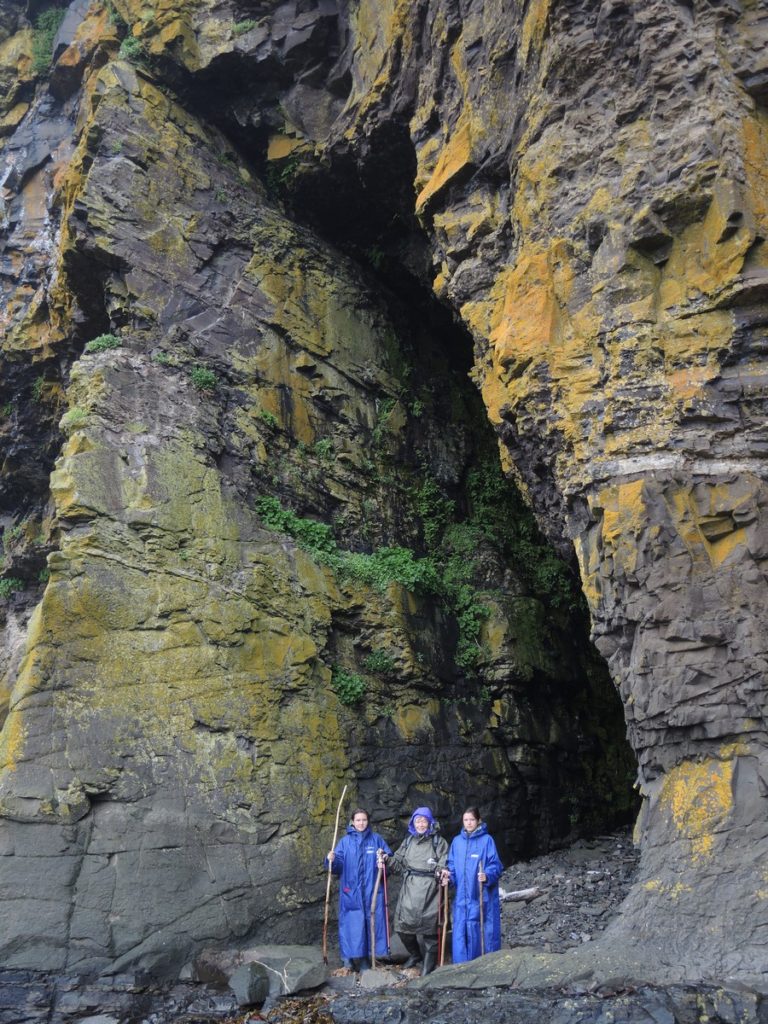
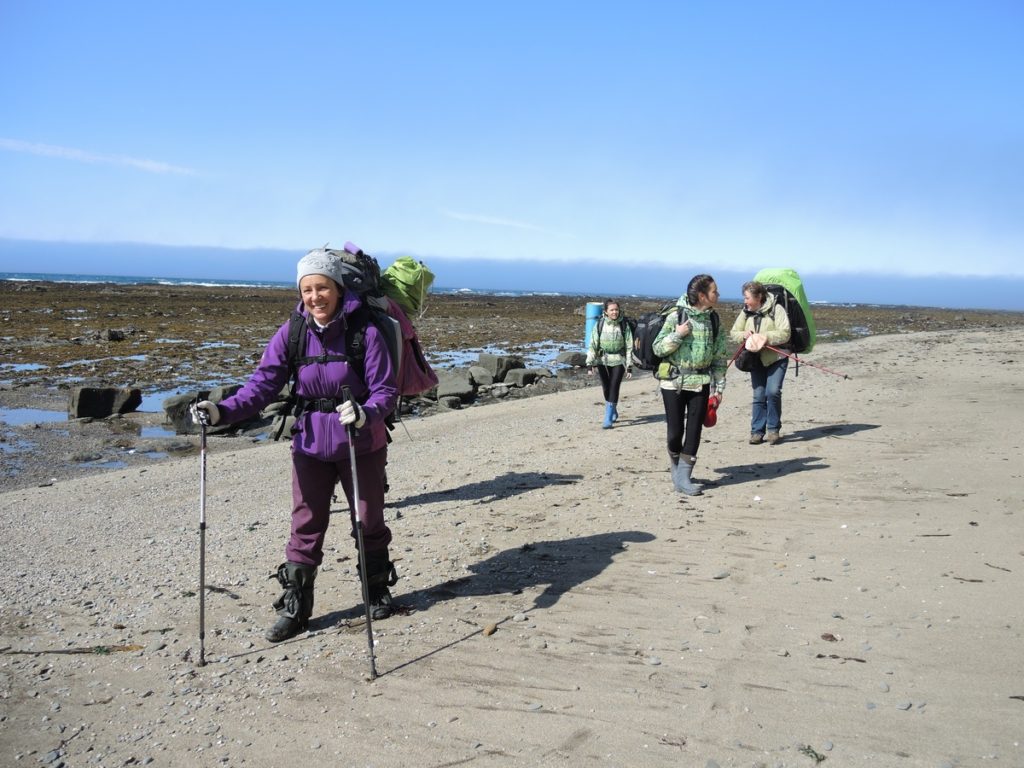
Our trip included excursions in the Poludennaya Bay. We walked along the coast at low tide to Steller’s Arch, observing the bird’s colonies. Students noted that there are no cormorant colonies in the usual places. At those places where they were nesting until last year, we have not observed colonies this year. But the birds settled on new rocks, and, surprisingly, there are a lot of cormorants, horned and tufted puffins nests on the Steller Arch itself. This year we observed much more horned puffins than last year. Also, we observed a large herd of reindeer. There is a camp of marine biologists in Poludennaya Bay. One of the biologists, Olga Titova, gave a very interesting lecture on cetaceans and methods of studying them.

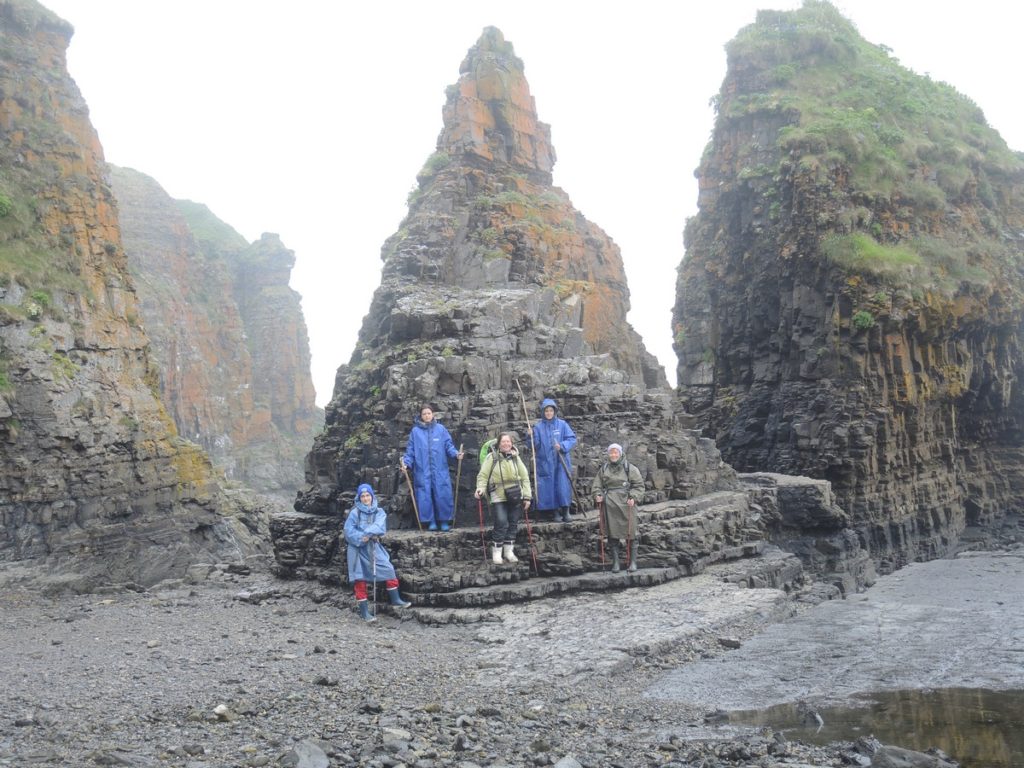
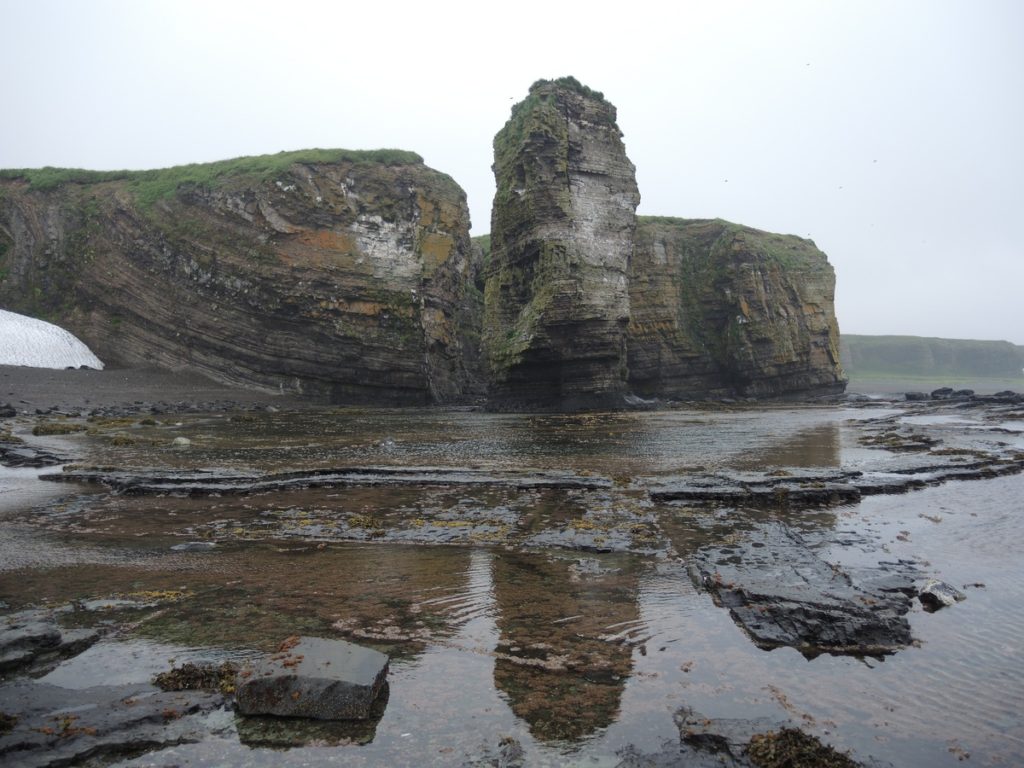
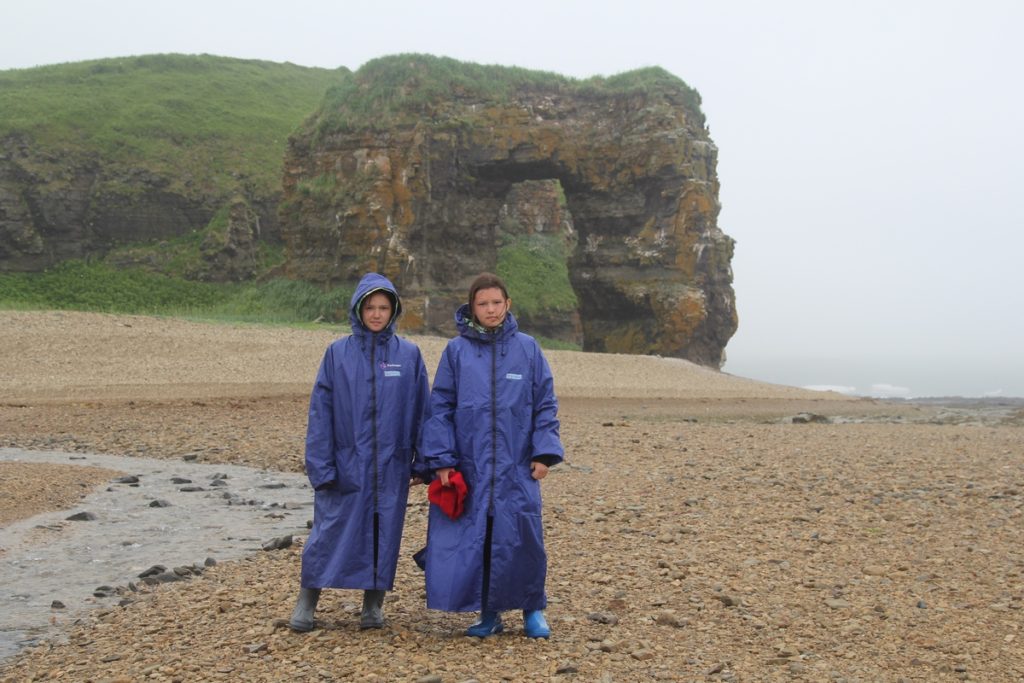
Polina Avdeenko, who was a Nikolsoe school student a few years ago, came to Bering islands during her summer university holidays and joined us on this mini-camp trip. Since 2013 Polina has participated in 7 Aflakh camps. She visited St. Paul island in 2017. The mini-camp was over a few weeks ago, but students have lots of stories to share.
We still hope that in 2022 the situation with COVID-19 will allow us to run the Aglakh camp. N.S. Fomina.
